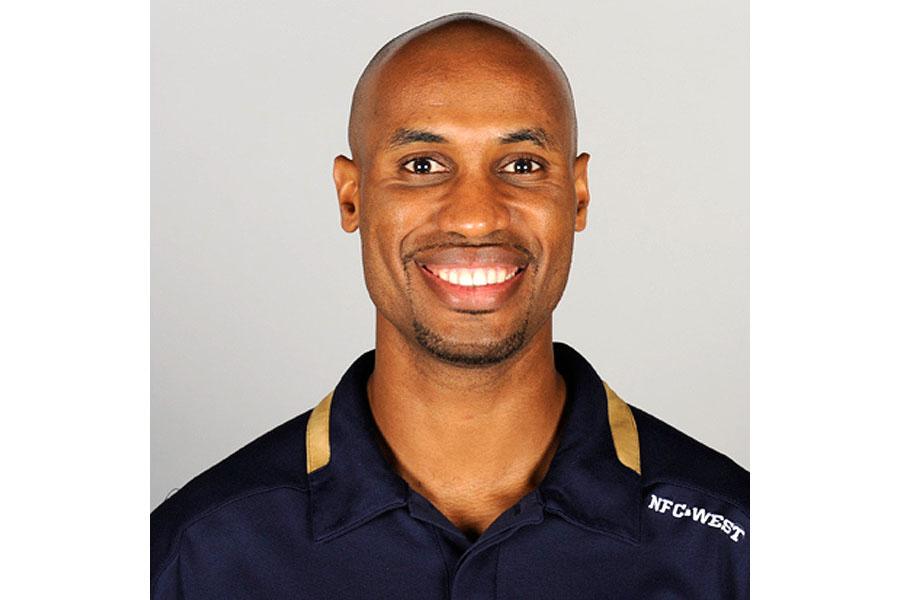Reggie Scott has been working in the NFL since 2002. Since 2011 Scott has been the head of athletic training and sports medicine for the Los Angeles Rams. A Rams Super Bowl appearance would be the third time in the league’s biggest game for Scott, who won a ring with the Buccaneers’ staff in 2003 and was on the Carolina Panthers staff in 2004.
Ahead of Sunday’s championship game against New Orleans, Scott talked about his life in sports medicine.
What made you want to pursue sports medicine as a career?
I’m from Dover and went to Dover High School, played baseball and basketball, I always loved sports. My senior year, I dislocated my patella tendon and that’s when I got my first introduction to sports rehab. I was impressed with how they cared for me and I was so appreciative that I thought I would want to do that one day.
I found I had a natural gift to be a caregiver and the concept of getting someone back from injury was something that was really rewarding. Things took off from there.
You’ve with the Rams since 2011. What do you remember about that first season being in charge?
The first word that comes to mind is swimming. You can prepare all you want for this job, but you can never prepare enough for taking on this role, being basically the number one health care provider in a high-risk for injury job. It’s a big job, when you look at the rest of the league, all the health care management and NFL concussion management and emergency care management. When I first got this job, it was a lot to take on but the first year was a really good experience for me.
Obviously you have a lot of game day responsibilities, but what is your job like day-to-day?
As the director of sports medicine and performance, when you think about what we do, we handle everything from a health management standpoint, from an upper respiratory infection to a torn ACL. The whole approach is to make sure the health care of our athletes is optimized during the week. We assess injuries and see what’s going on. That whole week we’re trying to get them back on the field.
What’s it like working every day with some of the world’s top athletes?
I can’t do my job without trust, these guys make a lot of money with their bodies and they’re entrusting their livelihoods with us. It’s different for every player, they all have different personalities and come from different backgrounds, my job is to have them feel comfortable and trust me. That personal relationship is so important. Sois treating every person and injury on an individualized level, showing we have their best interest in mind.
You’ve worked with several head coaches. What is dealing with those personalities like?
Every coach is different. When a new coach comes in the whole job is to get his philosophy down and get him to understand my philosophies, making sure they mesh together. At the end of the day, we want the same thing, to have our players available. Here we always say availability is better than ability and a lot of coaches value that. Coach (Sean) McVay, he’s a great listener, he empowers us and listens to what we have to say.
Do you ever take a moment to think about how cool it is to do this for a living?
Every Sunday, sitting on the sidelines, I get paid to watch football at the highest level, there’s nothing like it. In the divisional game it’s 5:15 p.m. and I’m looking across the field at the Dallas Cowboys. Being able to share the experience with the athletes and with the staff, before the game and after the game is something special. When you’re in the locker room and we all achieved something bigger than ourselves, I really have to pinch myself.
You got involved in sports medicine at a young age. Do you have any advice for those in high school who want to pursue that career?
Number one, you have to love it. You can’t do this job and not love it. It’s a lot of hours and time, you have to stay on top of things with research. You have to have a passion for what you’re doing and continue to work. The exposure I got early on was really important. I got an opportunity in college at West Virginia to intern, it’s really tough to get your foot in the door without it. You have to make sure it’s what you love to do and build your connections and build up your résumé to get into it. From there you can explore all kinds of options.
